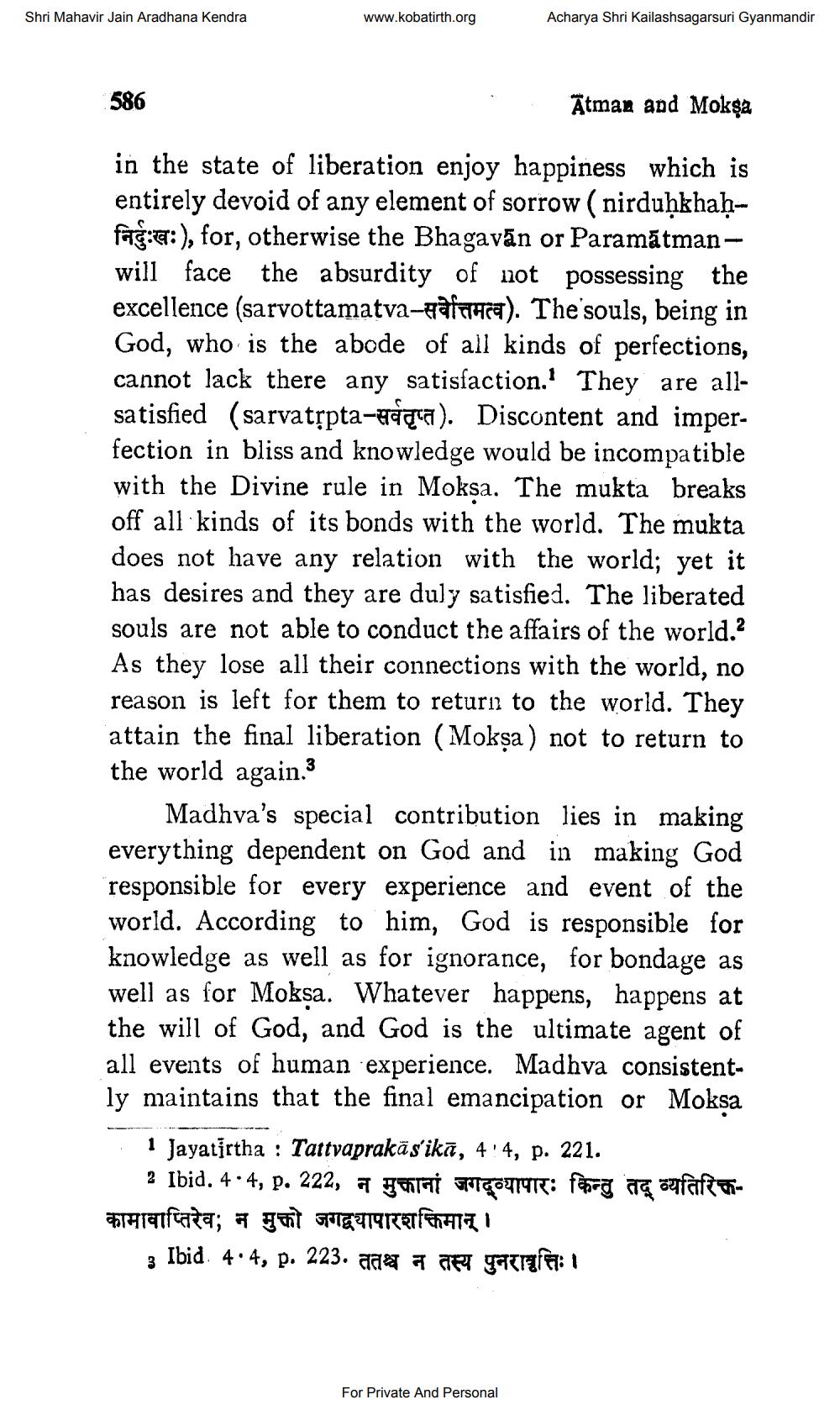________________
Shri Mahavir Jain Aradhana Kendra
www.kobatirth.org
Acharya Shri Kailashsagarsuri Gyanmandir
586
Ātman and Moksa
in the state of liberation enjoy happiness which is entirely devoid of any element of sorrow ( nirduḥkhaḥfag:e:), for, otherwise the Bhagavān or Paramātmanwill face the absurdity of not possessing the excellence (sarvottamatva-Haferica). The'souls, being in God, who is the abode of all kinds of perfections, cannot lack there any satisfaction. They are allsatisfied (sarvatçpta-aqua). Discontent and imperfection in bliss and knowledge would be incompatible with the Divine rule in Moksa. The mukta breaks off all kinds of its bonds with the world. The mukta does not have any relation with the world; yet it has desires and they are duly satisfied. The liberated souls are not able to conduct the affairs of the world.? As they lose all their connections with the world, no reason is left for them to return to the world. They attain the final liberation (Mokşa) not to return to the world again.3
Madhva's special contribution lies in making everything dependent on God and in making God responsible for every experience and event of the world. According to him, God is responsible for knowledge as well as for ignorance, for bondage as well as for Moksa. Whatever happens, happens at the will of God, and God is the ultimate agent of all events of human experience. Madhva consistently maintains that the final emancipation or Moksa . 1 Jayatirtha : Tattvaprakās’ikā, 4:4, p. 221.
2 Ibid. 4 • 4, p. 222, A GATTI corr: farg ag zufalttiकामावाप्तिरेव; न मुको जगद्वयापारशक्तिमान् ।
3 Ibid. 4.4, p. 223. aan hak graf: 1
For Private And Personal




